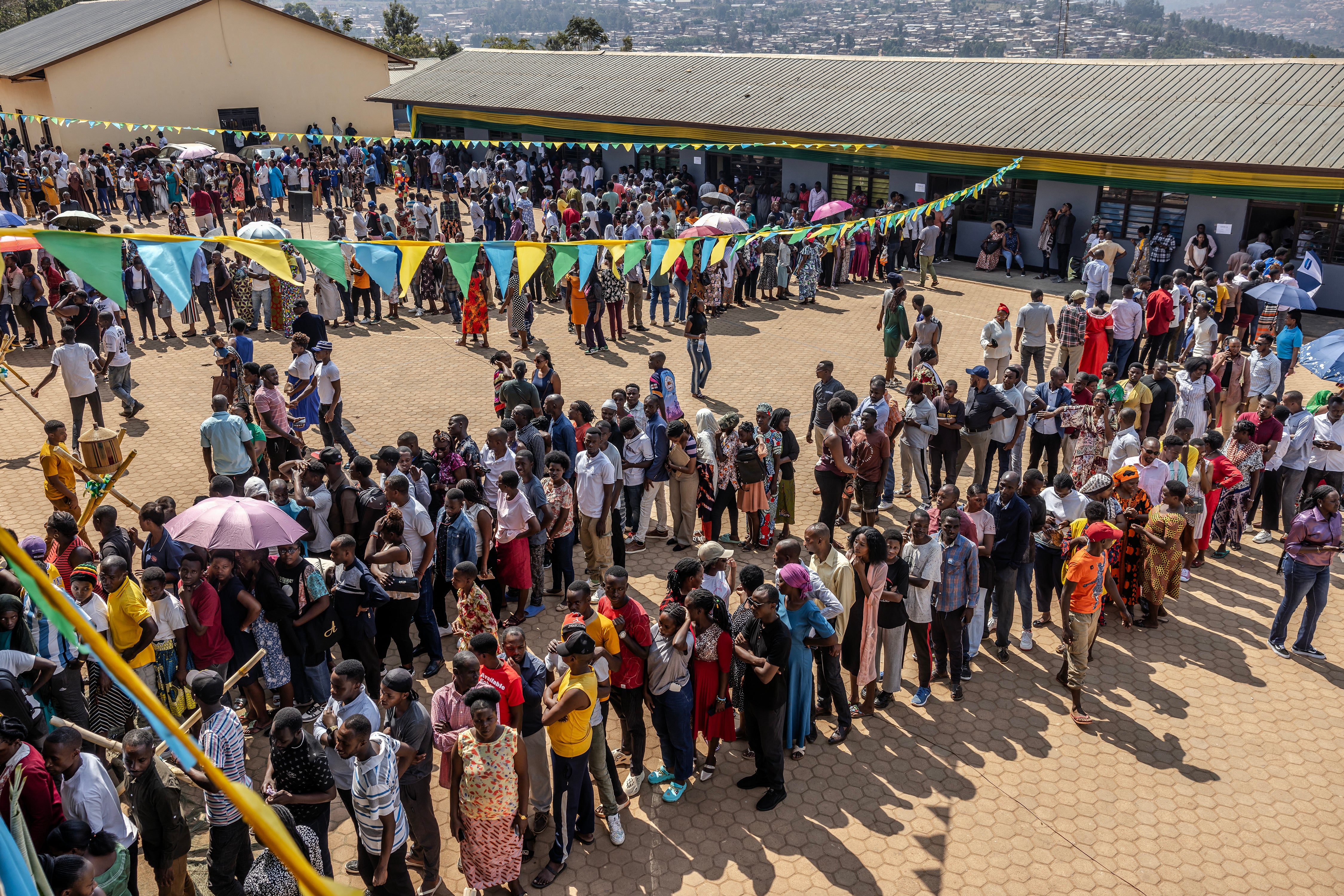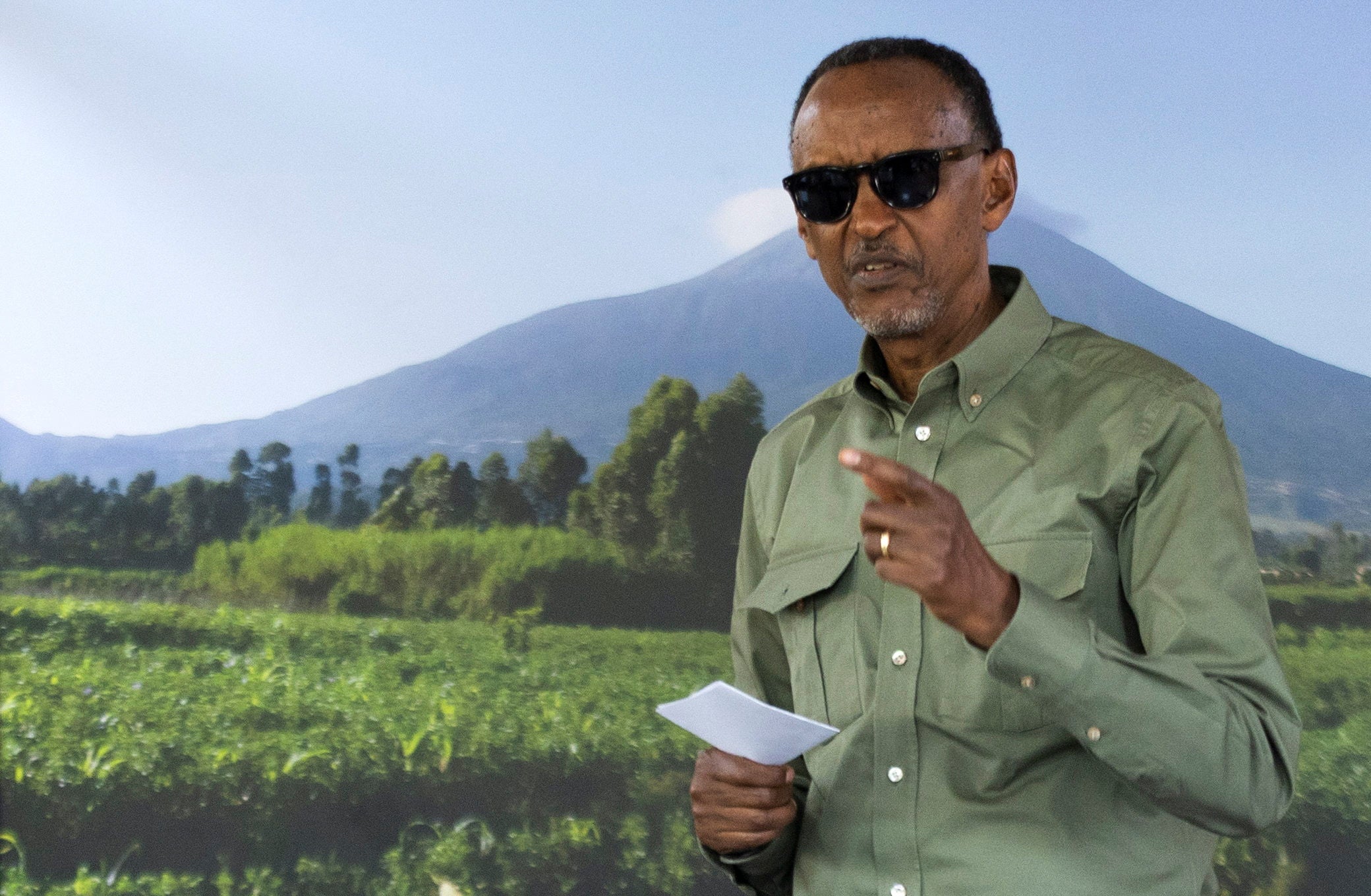Paul Kagame set to win flawed Rwanda election with 99% of vote
Incumbent president has been in office since 2000
Your support helps us to tell the story
From reproductive rights to climate change to Big Tech, The Independent is on the ground when the story is developing. Whether it's investigating the financials of Elon Musk's pro-Trump PAC or producing our latest documentary, 'The A Word', which shines a light on the American women fighting for reproductive rights, we know how important it is to parse out the facts from the messaging.
At such a critical moment in US history, we need reporters on the ground. Your donation allows us to keep sending journalists to speak to both sides of the story.
The Independent is trusted by Americans across the entire political spectrum. And unlike many other quality news outlets, we choose not to lock Americans out of our reporting and analysis with paywalls. We believe quality journalism should be available to everyone, paid for by those who can afford it.
Your support makes all the difference.Rwandan strongman Paul Kagame is set to extend his 24-year grip on power as provisional results from Monday’s election showed him securing a fourth term with 99 per cent of the vote.
The outcome was widely expected in the central African nation after the president ran virtually unopposed in an election widely criticised as unfair.
Mr Kagame ran against Frank Habineza of the Democratic Green Party of Rwanda and an independent named Philippe Mpayimana, the only other candidates who were granted permission to compete by the electoral commission.
At least three challengers were barred, including prominent opposition leaders Diane Rwigara and Victoire Ingabire.
Neither Mr Habineza nor Mr Mpayimana enjoyed much public support. They ran weak campaigns and together won less than a per cent of the vote, according to the provisional results released after 79 per cent of all ballots were counted.
The final results were expected to be announced by 27 July.
Mr Kagame, 66, is a divisive leader who has dominated the country since his rebel militia emerged victorious in the civil war in 1994 that ended the Rwandan genocide. His Rwandan Patriotic Front defeated the Hutus and drove them from power.

Although he had been the country’s de facto leader since the end of the civil war, Mr Kagame took over as president in 2000 and went on to win three terms largely unchallenged amid allegations that the elections weren’t conducted in a free and fair manner.
He has been accused by international rights groups of human rights violations, muzzling the media, eliminating opponents and supporting rebel groups in neighbouring Congo.
In a recent statement, Amnesty International raised concerns about "threats, arbitrary detention, prosecution on trumped-up charges, killings and enforced disappearances" targeting the political opposition in the country.
The suppression of dissenting voices in civil society and the media, the human rights group said, "has a chilling effect and limits the space for debate for people of Rwanda".
Mr Kagame’s government has denied the allegations and the president promised stability during his campaign.
“With you, there is nothing our country will not achieve, because today you have leaders who are not foolish and you are not foolish,” he told young supporters at a campaign rally in Eastern Province last week.

International scrutiny of Mr Kagame intensified after Rwanda made a deal in 2022 to receive thousands of asylum seekers from Britain. The deal faced legal and political challenges after the UK’s Supreme Court deemed Rwanda an unsafe country for asylum seekers.
Newly elected Labour prime minister Keir Starmer confirmed he would scrap the agreement.
As Mr Kagame prepares for his term, he faces escalating tensions with neighbouring Congo, which has accused Kigali of sponsoring the M23 rebel group that’s waging a war in the country’s mineral-rich eastern region. A day before the election on Monday, a UN report said Rwanda had sent around 4,000 troops to Congo.

Join our commenting forum
Join thought-provoking conversations, follow other Independent readers and see their replies
Comments